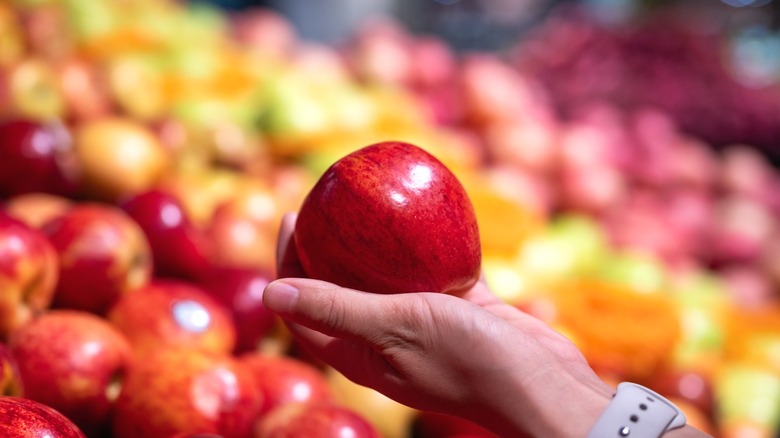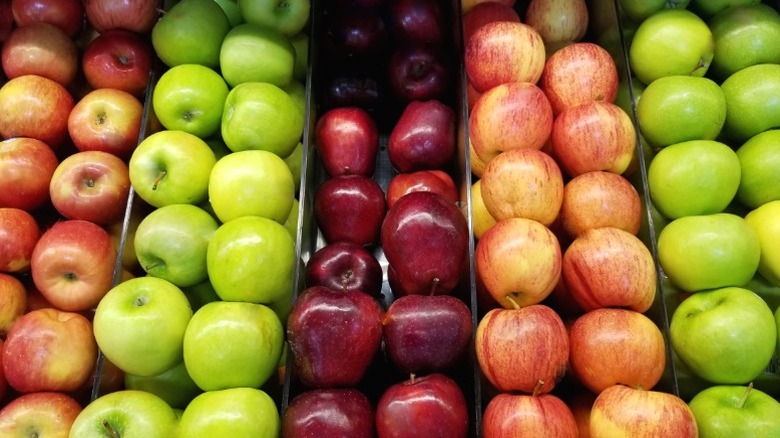That Apple In Your Grocery Store Might Be A Year Old
The modern grocery store is a place of almost mythic abundance. There's a reason children used to get oranges in their stockings at Christmas: fresh fruit in the middle of winter was once such a rarity that it became part of a special gift-giving holiday. Nowadays, thanks to industrial farming, global supply chains, and advances in preservation, you can eat as much fruit as you like at any time of the year. It's a wondrous state of affairs — but, lest we forget, not a natural one. There is a lot that goes into making sure you can eat fresh fruits and vegetables whenever you want; for instance, that apple you bought from the supermarket today may have been picked a year ago. (This is also the case with other produce, but we're using apples as an example.)
Before you freak out and start dialing Poison Control, don't worry: it will still be perfectly safe to eat. It turns out agricultural scientists know what they're doing when it comes to preserving food, and you almost certainly won't taste any difference. But apples, when left untreated and unpreserved, will go bad within weeks. That's bad news if you haven't sold out your inventory, and it's especially bad news if it's in the middle of February and you won't get a fresh harvest of apples until August. By preserving the apples, including by applying an edible wax, and refrigerating them in low-humidity conditions, they can extend their lifespan by months.
How apples get preserved
Although you can find apples at your local grocery store at just about any time of year, apples are only harvested from the months of August to November. If the apples are to be sold before the end of December, they will be sent to a specially refrigerated warehouse for storage until they're shipped to various shops; if the apples are to be sold later than that, they're placed in a sort of low-oxygen, low-humidity stasis that keeps them from ripening, and therefore from rotting. They are also often treated with a chemical compound called 1-methylcyclopropene to further delay the ripening process, keeping them glossy and youthful for as long as possible for use in holiday gift baskets and crisp, refreshing fresh fruit recipes alike.
If you're put off by this whole process, you can always frequent your local farmer's market for the freshest possible produce. But if it helps, consider the alternative. In the years before this storage process became commonplace, groceries would almost exclusively stock the hardiest apples that could be produced and kept year-round. What did this mean in practice? The proliferation of the much-maligned Red Delicious. So please, folks: fight the real enemy.

